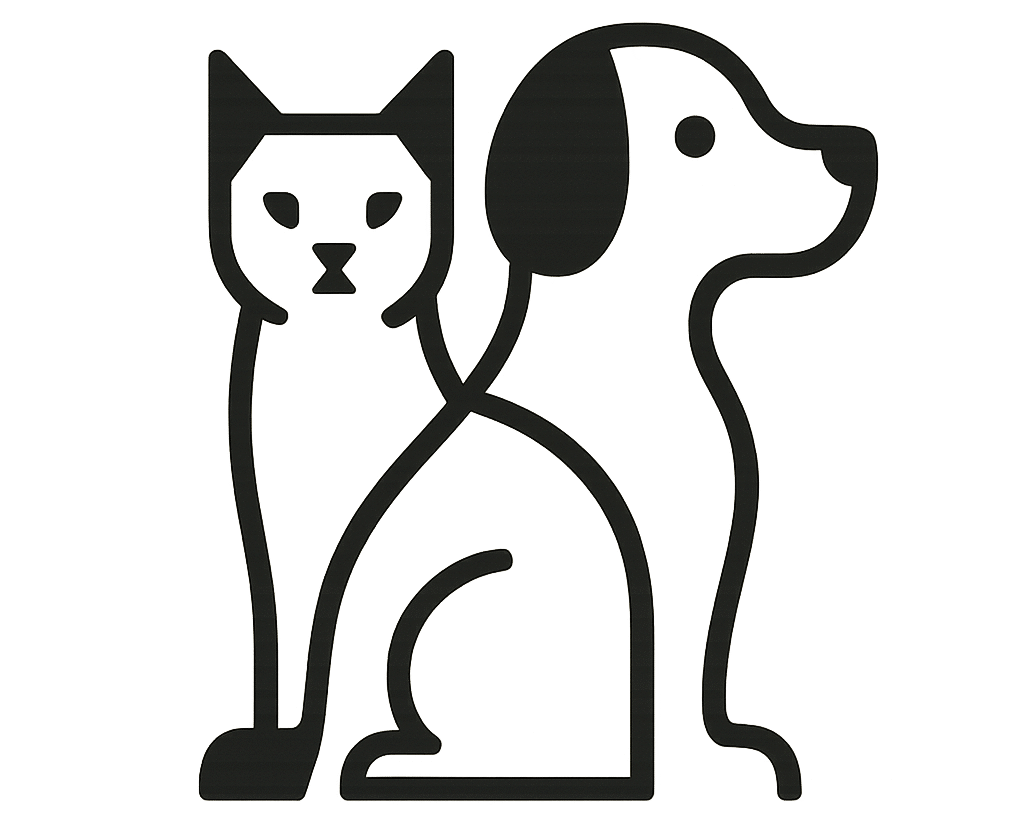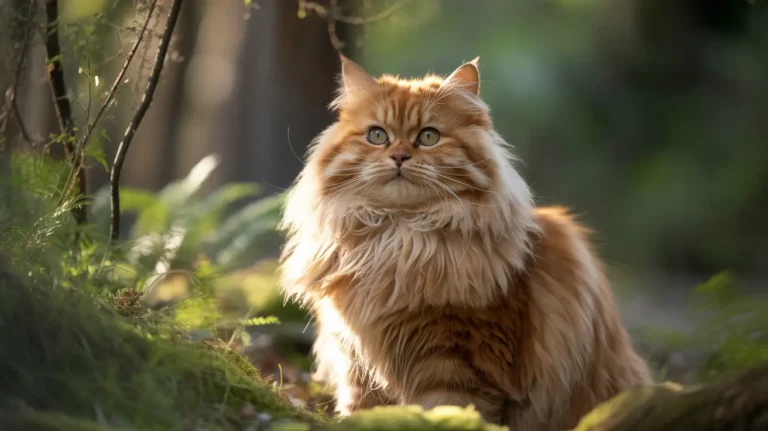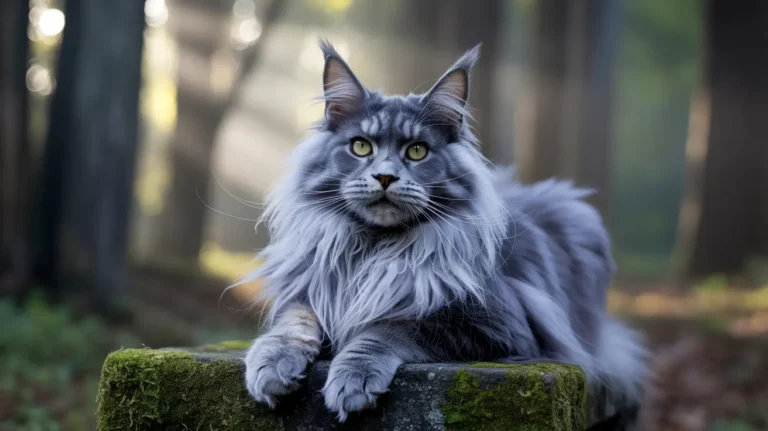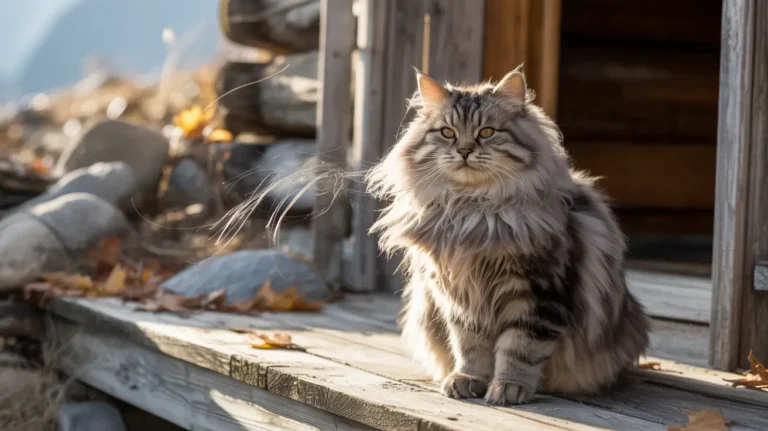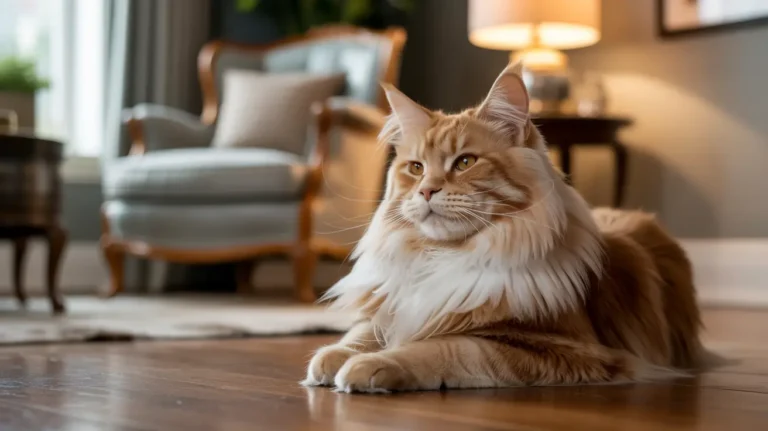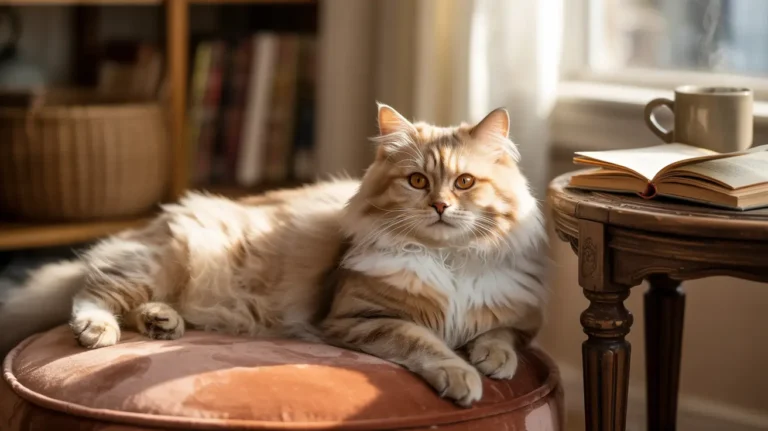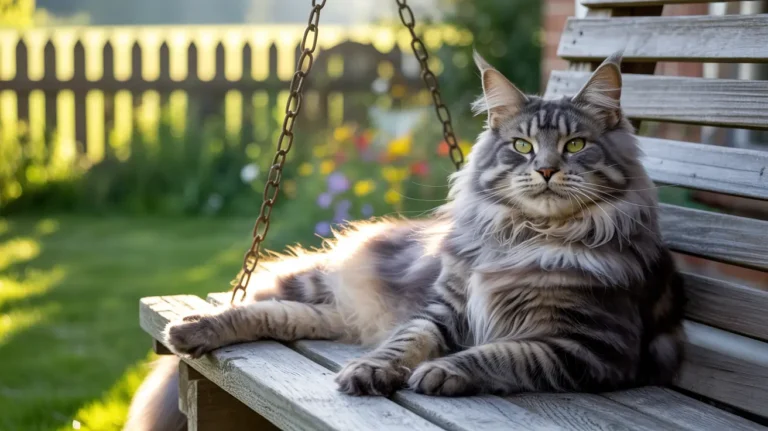Top Nutrition Tips for Maine Coon Cats to Keep Them Fit
Maine Coons are one of the biggest cat breeds in the world. They are large, strong, and full of energy. Because of their big size and active nature, they need a special diet that fits their needs. You cannot feed a Maine Coon the same way you feed a normal cat.
If they do not receive the right nutrients, they can gain excessive weight or face health issues. A healthy diet helps them stay active, grow strong muscles, and live a long, happy life.
This guide will show you how to feed your Maine Coon properly at every stage of life — from kitten to senior cat. You will learn what kind of food they need, what nutrients are most important, how often to feed them, and what to avoid.
Let’s start by understanding what makes Maine Coon cats different and why their nutrition needs special attention.
Understanding Maine Coon’s Unique Dietary Needs
Maine Coon cats have a big and strong body. Because of this, they need more calories than smaller cats. But feeding them too much can cause obesity, which is a common problem in Maine Coons. So, it’s important to give them the right amount of food, not too much and not too little.
One thing that makes Maine Coons different is how slowly they grow. While most cats become adults at around 1 year of age, Maine Coons keep growing until they are 3 to 5 years old. This slow growth means their food needs change as they grow.
You need to make sure they are getting enough protein for muscle growth, and enough healthy fats to keep their long, thick coat shiny and healthy. Because of their large size, Maine Coons also need extra support for their joints and bones. Nutrients like glucosamine and chondroitin are helpful for keeping their joints strong.
Maine Coons are also very playful and active, which means they burn more energy. A diet high in quality protein and low in empty fillers is best for them. Avoid foods that have too many grains, artificial colors, or low-quality ingredients.
Nutrition Tips for Maine Coon Cats: How to Keep Your Big Furry Friend Healthy
If you have a Maine Coon, you know they’re not like other cats—they’re bigger and need special care, especially when it comes to food. These nutrition tips for Maine Coon cats will help you give your gentle giant exactly what they need.
Focus on high-quality protein for strong muscles, healthy fats for their beautiful coat, and nutrients like taurine and glucosamine to keep their heart and joints in top shape. Mixing wet and dry food keeps them hydrated and happy. Remember, portion control is key to avoid weight gain. Feed smart, and your Maine Coon will thrive!
Nutritional Requirements by Life Stage
Just like humans, Maine Coons have different needs at different ages. What a kitten needs is not the same as what an adult or senior cat needs. Feeding your cat according to its life stage helps prevent health problems and keeps them healthy.
Kittens grow very fast and need lots of energy. Their food should be high in protein and fat. They should eat 3 to 4 small meals a day. Kitten food is specially made to support growth, strong bones, and a healthy immune system.
Adult Maine Coons need a balanced diet that maintains muscle mass and supports daily activity. Two meals a day are usually enough. At this stage, it’s important to monitor weight. Adjust the portion sizes if your cat becomes too thin or too heavy.
Senior cats need fewer calories because they are less active. However, they may need more support for their joints, kidneys, and digestion. Choose food made for senior cats that includes glucosamine, Omega-3s, and easy-to-digest ingredients.
Senior cats may also need softer food if they have dental issues. Providing extra water through wet food can help prevent kidney issues, which are common in older cats.
Key Nutrients Every Maine Coon Needs
Maine Coon cats need many nutrients to stay healthy. Their size and energy level mean they need more of some nutrients compared to regular cats.
Wet vs. Dry Food: What’s Better for Maine Coons?
When feeding your Maine Coon, you may wonder whether wet food or dry food is better. The truth is, both types have their benefits, and combining them is often the best choice.
Benefits of Wet Food
Wet food contains a high amount of water, which helps keep your cat hydrated. Maine Coons, like many cats, may not drink enough water on their own. Wet food supports their urinary and kidney health.
It’s also softer, making it easier to chew, especially helpful for older cats with dental issues or kittens who are just starting solid food. Wet food also tends to have fewer carbohydrates, which is good for weight control.
Benefits of Dry Food
Dry food is more convenient for pet owners. It stays fresh longer, is easier to store, and helps reduce tartar build-up on teeth.
Dry food also contains more calories per gram, which is useful for active Maine Coons who need more energy. But it’s very important to choose high-quality dry food — avoid brands with fillers like corn or soy.
Best Feeding Approach
Combination feeding is usually the best. Give wet food once or twice a day for hydration, and offer a measured portion of dry food for dental health and energy.
Always check labels to make sure meat is the first ingredient, and avoid by-products and artificial colors.
Homemade & Raw Diets: Are They Safe?
Some pet owners prefer to feed their Maine Coon a homemade or raw food diet. While this can work, it’s not as simple as it seems. Getting the right nutrition balance is very difficult without expert help.
Risks of Homemade Diets
Homemade diets may miss important nutrients like taurine, calcium, and certain vitamins. If these are missing, your cat may develop health issues like weak bones, poor vision, or heart problems.
Cooking meat also removes some nutrients, so you must add supplements, and guessing isn’t safe. It’s always best to consult a vet or certified pet nutritionist before starting any homemade meal plan.
Risks of Raw Diets
Raw diets include uncooked meat, organs, and bones. Some believe raw feeding is more natural, but it has serious risks.
Raw meat can contain bacteria like Salmonella or E. coli, which can make both your cat and your family sick. Cats with weak immune systems (like kittens or seniors) are especially at risk. Raw bones can also break teeth or cause choking.
If you do choose homemade or raw food, make sure it’s under professional supervision. Some vets can help you create a balanced plan with the correct portions and needed supplements. But overall, high-quality commercial cat food is usually the safer and easier option.
Foods to Avoid: Dangerous Ingredients for Maine Coons
Some foods and ingredients are very dangerous for Maine Coon cats and must be avoided completely. Feeding the wrong thing can lead to serious illness or even be life-threatening.
Toxic Human Foods
Never feed your Maine Coon the following foods:
Even small amounts of these foods are dangerous. Always keep them out of your cat’s reach.
Avoid Low-Quality Cat Food
Stay away from cat food with cheap fillers like corn, wheat, soy, and artificial colors. These ingredients provide little nutrition and just add empty calories, increasing the risk of obesity. Look for brands that list real meat (like chicken, turkey, or fish) as the first ingredient.
Limit Treats
Many treats are high in fat and calories. Feeding too much can lead to weight gain or upset your cat’s stomach. Treats should make up less than 10% of your cat’s daily calories. Use them as rewards during training, not as regular food.
Special Dietary Considerations for Maine Coons
Maine Coons are beautiful, active cats, but they have some special dietary needs you must keep in mind to keep them healthy and happy.
Obesity
Maine Coons are naturally big, but they can also become overweight easily. Their love for food makes overfeeding a common issue. Use a measuring cup for each meal, and don’t leave food out all day (no free-feeding).
Monitor their weight and body shape. If you can’t feel their ribs, they may be overweight. Ask your vet for portion guidance based on your cat’s weight and activity level.
Food Allergies
Some Maine Coons develop allergies to certain ingredients like chicken, beef, or grains. Common signs of food allergies include:
If you notice these symptoms, your vet may suggest a limited-ingredient diet or an elimination trial to find the cause. Avoid switching foods too quickly, and always change diets slowly over 7–10 days.
Hairballs
Maine Coons have long, thick fur and groom themselves often. This makes them more prone to hairballs. To reduce hairballs:
Hairball control treats and pastes can also help, but grooming and a good diet are the best ways to prevent them.
Feeding Schedule for Maine Coons
| Life Stage | Meals/Day | Food Type | Feeding Tips |
| Kittens | 3-4 | High-protein kitten food | Small, frequent meals to support growth |
| Adult | 2 | Balanced adult cat food | Adjust portions based on activity & weight |
| Seniors | 2 | Senior formula with joint support | Consistent timing, extra hydration needed |
Supplements: When and What to Add
If your Maine Coon is eating a well-balanced, high-quality commercial diet, chances are they won’t need any extra supplements. However, certain situations may call for a little boost. For example, if your cat has stiff joints, dry skin, or trouble with digestion, your vet may suggest specific supplements to help.
Omega-3 fatty acids are great for maintaining a shiny coat and reducing skin inflammation. Glucosamine and chondroitin support healthy joints—especially helpful as your Maine Coon gets older and more prone to joint wear and tear due to their size.
Probiotics are useful for cats with sensitive stomachs or recent antibiotic use, as they help rebalance gut bacteria. Sometimes, a multivitamin may be needed, but only if your vet finds a deficiency through testing.
It’s important not to guess or go overboard—giving your cat too many supplements without guidance can cause harm. Always check with your vet before adding anything new to their diet.
Hydration Matters
Maine Coon cats may look tough and active, but like all felines, they aren’t always great at drinking water. Staying hydrated is critical for their kidney, bladder, and overall health.
Dehydration can sneak up quietly and lead to urinary issues or kidney stress problems, especially in older cats. One of the easiest ways to help is by offering wet food regularly, which naturally adds moisture to their diet.
You can also make drinking more appealing by investing in a cat water fountain, which many cats prefer over still water. Place water bowls in calm, quiet areas around your home and make sure they’re cleaned daily.
Some owners even add a little water or low-sodium broth to dry food to give an extra hydration boost. These small changes can make a big difference in your cat’s long-term health and help prevent preventable issues down the road.
Weight & Body Condition
Maine Coons are naturally large cats, but that doesn’t mean every big belly is healthy! Because they’re prone to weight gain, it’s important to monitor your cat’s body condition regularly.
A healthy Maine Coon should have a waist you can see from above and ribs you can feel without pressing hard. If your cat looks rounder than usual or you’re unsure about their shape, try weighing them once a month. Even a few pounds of extra weight can cause stress on their joints and organs.
To help manage weight, avoid leaving food out all day. Instead, use a measuring cup and feed portion-controlled meals at scheduled times. Don’t forget about exercise—daily play sessions with toys, laser pointers, or feather wands can go a long way in keeping your Maine Coon trim and energetic.
If you’re ever unsure whether your cat is overweight or underweight, a quick visit to the vet can provide clarity and feeding guidance.
Common Feeding Mistakes to Avoid
Even the most loving cat owners can make feeding mistakes without realizing it, and those small missteps can add up over time. One of the biggest mistakes is free-feeding, or leaving food out all day. This can lead to overeating, weight gain, and a lack of routine.
Instead, serve meals at regular times using proper portion sizes. Another issue is feeding only dry food. While convenient, dry kibble lacks moisture, which can increase the risk of dehydration and urinary issues.
A healthy mix of wet and dry food provides hydration and variety. It’s also essential to read labels carefully—many commercial foods are filled with cheap fillers, artificial colors, and vague ingredients. Make sure real meat is the first ingredient and avoid products with ingredients you can’t recognize.
Skipping vet advice is another common mistake. If your cat’s weight changes suddenly or if they develop food sensitivities, consult your vet before trying to fix it on your own. And finally, never change your cat’s food too quickly.
A sudden switch can cause stomach trouble, leaving your cat miserable and you cleaning up the mess. Gradual changes over a week or more are best.
